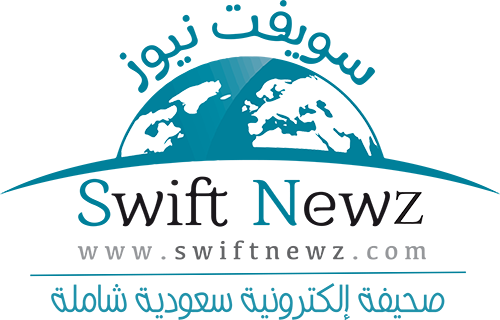Cool Best CBD Oil for Anxiety
Firstly..
Stress, even though a critical adaptive reaction that permits us to take care of dangers, at its extreme it may hamper our ability to execute even the simplest of jobs – and our lives. Anxiety disorders are characterized by feelings of intense anxiety and anxiety, often related to an elevated heartbeat and tremors. It’s believed that anxiety disorders influence the lives of 12 percent of the populace at a specific time, which around 30 percent of both women and men suffer with it at one stage in their lifetimes.
Such tranquilizers, nevertheless, are highly addictive and include undesirable side effects.
But unlike THC, that is accountable for cannabis’ side effects, extensive research indicates that CBD petroleum isn’t psychoactive. So unlike THC, that may occasionally make you anxious, CBD has been proven to have a calming effect upon intake – decreasing your nervousness and so making it an perfect anxiolytic agent.
How CBD affects pressure stays a small puzzle, as it seems to act upon a broad assortment of brain websites. Additionally, this is not equating that stress itself may be equally complicated in its own symptomology. Until recently, a lot of the study on the potentials for CBD to be utilized as an anxiolytic, were based around the assumption that it can be acting at one of the dopamine receptors, similar to the drugs generally prescribed. But recently, studies have turned towards its potential impacts on neuron regeneration (neurogenesis), in addition to towards the body’s very own endocannabinoid system and its reaction when confronted with anxiety.
Serotonin Receptors.
Like the pharmaceutical SSRIs, CBD seems to grow the signaling throughout the nitric oxide, which might decrease stress and boost mood. Especially, CBD seems to do that by activating an abysmal reaction that slows down 5-HT1A signalinga dopamine receptor accountable for antidepressant consequences. This produces an anxiolytic answer, unlike with LSD and other hallucinogenic drugs that seem to trigger the 5-HT2A receptor, thus resulting in an excitatory reaction.
Neurogenesis.
Particular studies have focused about brain imaging as a means to measure depression and anxiety. The brain scans of these patients experiencing anxiety and depression, often present with a smaller hippocampus.
Organic neurogenesis, however, is believed to greatly diminish previous adolescence. In addition, there’s sufficient evidence to indicate that suicidal behaviour could be derived from a badly impaired neuronal plasticity.
CBD, nevertheless, provides ray of light within the specialty of neurogenesis. As preliminary studies on animals indicate that it might assist the hippocampus in its own regeneration. Likewise further studies on animals also demonstrate that CBD enhanced neuroregeneration in the neural system of adult mice, while THC had no impact. The analysis also concluded that CBD didn’t impair learning.
Interestingly, these cannabinoid receptors have been found in regions of the brain known to control anxiety, anxiety, and finally mood and behaviour. The ECS is finally involved in almost everything the body needs to survive: by eating, exercising and sleeping to giving birth. It combats inflammation throughout the body, also helps to keep a balance in the metabolism, immune system, cognitive capabilities, and developing procedures.
Inflammation and anxiety are linked, therefore it’s not surprising that the secret to combat anxiety can be found in the ECS. That is really where CBD comes in as a effective anti inflammatory and antioxidant agent, acting on the body’s endocannabinoid system along with its own cannabis receptors to fight inflammation. CBD it therefore effective at changing your body’s immune responses, affecting white blood cell generation and improving your own resilience.
This is because without eating any kind of cannabis, once you’re stressed, your inner cannabinoid system will utilize cannabis-like molecules so as to resist stress and stressful circumstances. As many studies have proven, CBD operates by encouraging the human body’s immune system in its own reaction to inflammation and anxiety, making CBD oil perfect in treating anxiety-related ailments such as post-traumatic anxiety disorder (PTSD), social anxiety disorder, obsessive compulsive disorder (OCD) and panic disorder.
But, CBD doesn’t interact directly with all the cannabinoid receptors CB1 and CB2. This explains partially why CBD isn’t psychoactive, unlike its counterpart THC there.
In the long run, the findings of this scientific study available now all draw to the value of keeping a healthful and balanced endocannabinoid system, so as to reach resilience and thus a healthy stress response. The newest emerging human clinical trials seem to encourage using CBD and CBD extracts so as to accomplish such a balance.
Last Thoughts.
Various human trials are done across the world, which reveal that after swallowing CBD, subjects always show anti-anxiety consequences. Clinical trials, however, are only touching the surface, as the procedures about mood disorders are to be completely comprehended.
Given that CBD can act upon a broad selection of brain websites, its precise workings as a powerful anxiolytic are yet to be completely comprehended. Yet, current clinical trials and clinical research seem to support its use in treating stress disorders. The taste of utilizing CBD oil versus current pharmaceuticals, is based in the fact it creates little to no side effects and not one of the addictive behaviour commonly associated with opioids. Furthermore, CBD oil in spray type provides nearly instant benefits and a number of the maximum absorption rates on the market.
DISCLAIMER: We don’t have any intention to treat, diagnose or counsel as a medical jurisdiction. None of the information supplied on this site was assessed by the Food and Drug Administration. Use CBD oil in your own risk.




